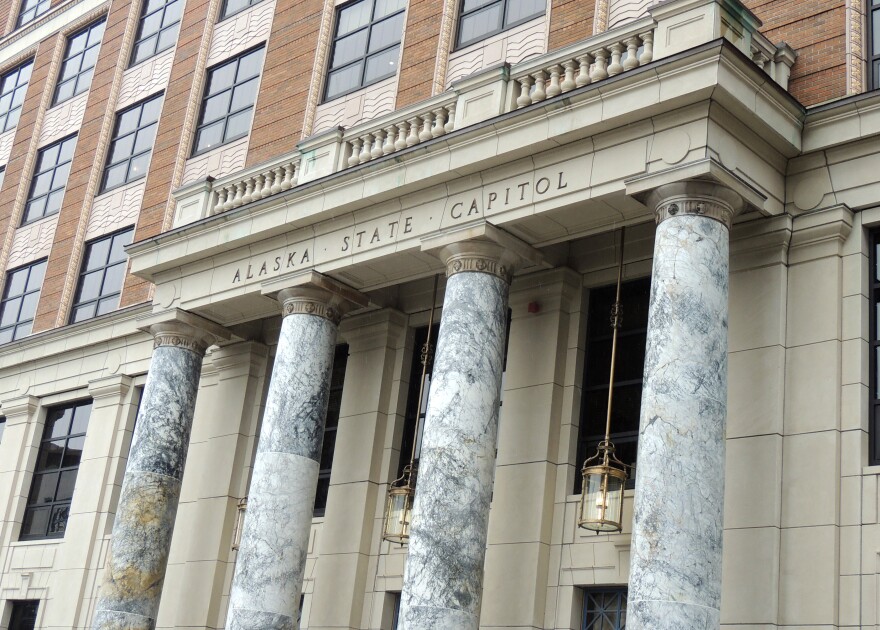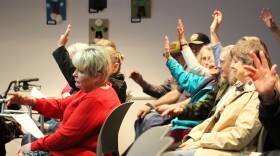As state lawmakers meet in Juneau this legislative session, the underlying factor driving movement on nearly every topic is money. Or, rather, the lack of money. As they figure out how they want to move forward, Kenai Peninsula residents are joining others from around the state in making sure their own budget priorities are heard.
A new forecast from the Alaska Department of Revenue projects a $200 million deficit for the current fiscal year. That’s on top of a $1.6 billion deficit for next fiscal year under Gov. Mike Dunleavy’s proposed budget. It’s left lawmakers with some tough choices, and residents to advocate for their priorities.
Emma Beck graduated from Kenai Central High School last year and is now a student athlete at the University of Alaska Anchorage. Last week, she asked members of the House Finance Committee to support funding for university athletics.
“There's not a lot of outlets and opportunity in Alaska, and I feel like year by year, they're getting smaller and smaller with the budget cuts,” she said. “Both my parents are educators, so I've seen the effects of, you know, cutting teachers on the community and the community of Kenai.”
Waynette Coleman, of Ninilchik, wants lawmakers to put a full Permanent Fund Dividend in the budget. In recent years, the state has split permanent fund draws between dividend payments and state operating costs. But this year, Dunleavy wants to give every Alaskan the full amount – about $3,800.
“We really do know how to spend our own money,” Coleman said. “And I would like to see it continue to be part of what it’s supposed to be, and not actually in a budget setting.”
A debate that goes hand-in-hand with budget talks is new revenue streams for the state. Some lawmakers favor a statewide sales tax, while others have proposed an income tax. One initiative getting some attention this session would require a new type of oil and gas corporation to pay corporate income taxes.
The bill would almost exclusively apply to Hilcorp, which doesn’t currently pay any corporate income taxes. That sets it apart from other oil and gas companies, like ExxonMobil and ConocoPhillips. It’s estimated the change could generate more than $100 million per year for the state.
Ben Boettger is an energy analyst with Cook Inletkeeper, an environmental nonprofit that aims to protect the Cook Inlet watershed. He supports the bill, and told members of the Senate Resources Committee he doesn’t think subjecting the new corporation type to existing taxes would deter the company from making new investments.
“Aside from the practical benefits of closing the revenue leak that’s contributed to our substantial budget deficits, SB 92 establishes basic fairness,” he said.
Homer resident Landa Baily had a laundry list of suggestions for House Finance Committee members. Among other things, she proposed a comprehensive review of the way Alaska taxes the mining industry, pushed for the release of a state study on salaries and urged full funding of public schools.
“Stop with the million-dollar studies for the Juneau road and recommit to the Alaska Marine Highway System success,” she said. “Step up your legislative constitutional duty with its power of oversight to ensure timely receipt of federal funds.”
The legislative session is far from over, and a lot can happen in a couple of months. But in the meantime, much is still undecided regarding the state budget. Another round of public hearings on budget bills is scheduled for next week. A full list of upcoming hearings and information about the bills being considered is available on the Alaska Legislature website.







